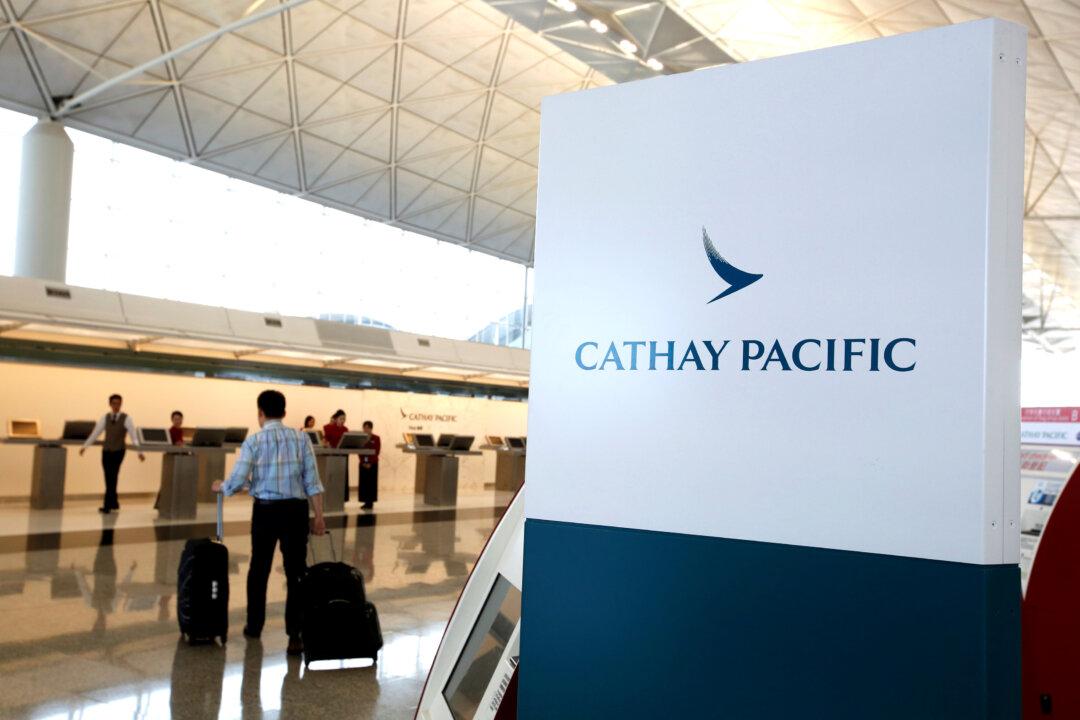BEIJING/HONG KONG—Shares in Cathay Pacific Airways closed at a 10-year low on Aug. 12 after the Hong Kong flag carrier became caught in crosswinds between Beijing and pro-democracy groups in the Asian financial hub.
Increasingly violent protests since June have plunged Hong Kong into its most serious crisis in decades and are one of the biggest popular challenges to Chinese leader Xi Jinping since he came to power in 2012.





